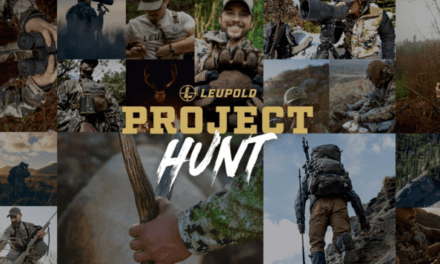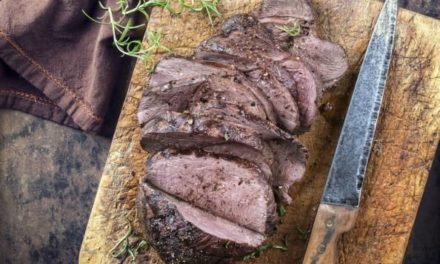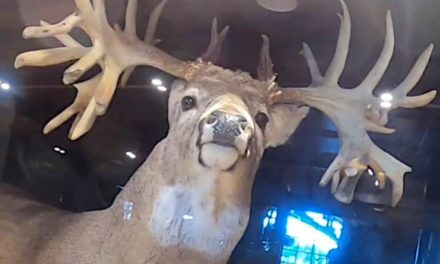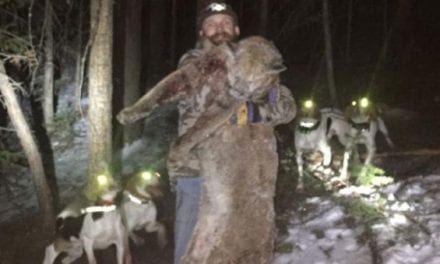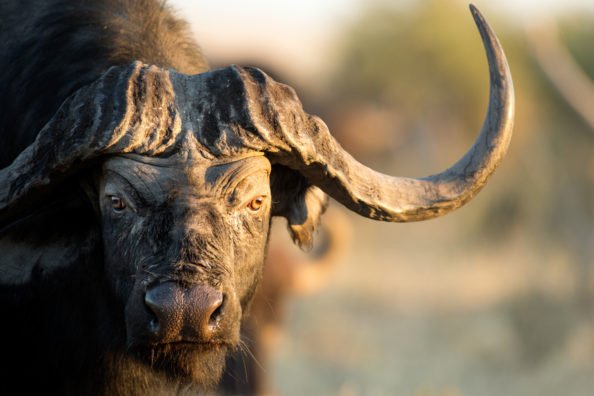
If you want to check off the biggest of the Big Five, then you may as well start off with the cape buffalo.
Considered by many big game hunters as the most dangerous game animal in the world to hunt, the cape buffalo can and will kill or maim you without remorse. They can be huge – growing up to 1,500 pounds or more. They are also completely unpredictable, and resoundingly angry, but the bottom line is that they can be hunted with the right outfitter.
Those who think that this may be a bucket list item, think again because it may be more of a “kick the bucket” list item. All kidding aside, hunting and bagging a cape buffalo trophy is doable if you’ve done your research, found a reputable guide, and honestly have the money for such an excursion.
We’ll say right off the top that few if any of us has been able to mount such a big game expedition, so we’ll do our best to give you the correct information. Having said that, let’s look at the animal and where they live, the right tools for the job, and getting an outfitter.
Cape Buffalo
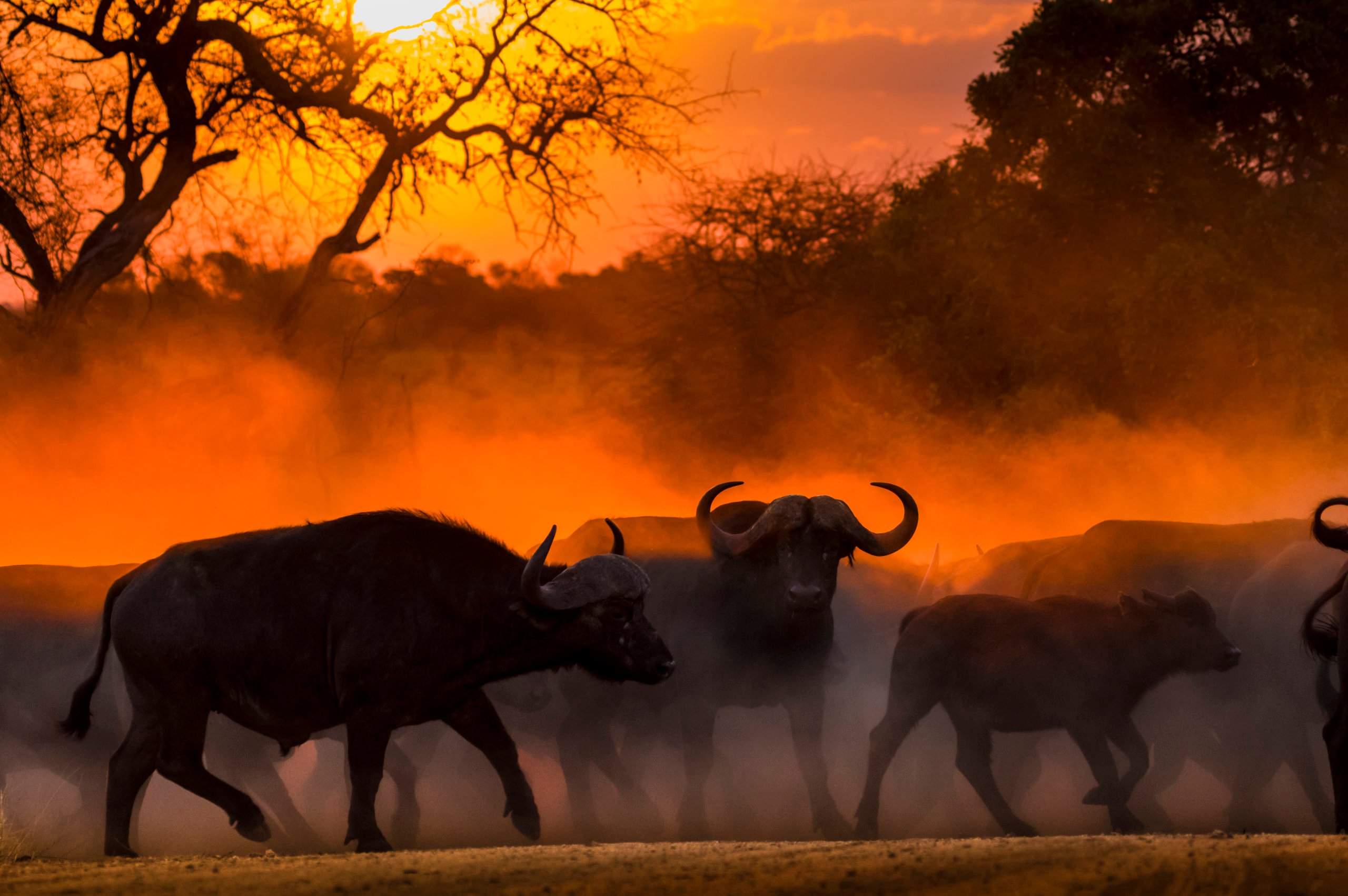
Also known as the southern savanna buffalo, the cape buffalo is the most common of the four distinct subspecies that exists in Africa. Savanna buffalos are large, very heavy animals similar in appearance to the bigger cow species. Interestingly, they vary greatly not only in size but in the shapes of their horns and their coloring.
Like many bovines, both males and females have heavy, ridged horns that grow straight out from the head, curve downward and then up in a frighteningly intimidating pattern. Since they can grow from 900 to an incredible 1,800 pounds or more, you might think that no creature would ever mess with one. But that size does not deter lions, leopards, even hyenas and wild dogs, who are known to be predators of cape buffalo.
One can argue human hunters are still the most deadly.
They inhabit a wide range of habitats, including semi-arid bushland and montane grasslands to coastal savannas and lowland rainforests. They almost always congregate around water. Cape buffalos eat a lot of wild grasses to sustain their bulk. The largest populations occur in well-watered savannas and other areas where they can not only have much to eat, but cover to hide from predators. The same kind of cover that you need to hunt them.
Where To Hunt Cape Buffalo
For those with a strong will, a taste for dangerous game hunting, and deep pockets, cape buffalo hunting can be had in several African countries. According to Book Your Hunt no less than Namibia, Tanzania, Zambia, Zimbabwe and Mozambique and especially the enclosed areas of South Africa are all open for buffalo hunting. Botswana is also an option.
Most of these hunting trips occur in Southern Africa with Zimbabwe being the runner up. Since “Cape Buffalo prices range significantly from an all-inclusive game ranch hunt in South Africa to a full blown traditional East African safari,” it is then a matter of the hunter making the decision as to what he or she really wants from this big game hunt.
As with many hunts set up by an experienced outfitter, there are differing levels of hunting experiences such as for management bulls, or the downright trophy animal of your dreams. “On the bigger open territories of Namibia, Zimbabwe, Zambia, Tanzania and Mozambique, the buffalo package prices range from $12,000 – $20,000.”
That’s not an easy target number to get over, but hunting any of the Big 5 is a challenge at all levels.
Cape Buffalo Hunting
We found one good source of information to this end from Nick Bowker Hunting. Some interesting facts that they share for their prospective clients start right off with maybe the most important: Cape buffalo hunting results in the death of more hunters than any other big game species.
These animals may have poor eyesight and hearing, but they have an incredible sense of smell. Known as the “black death” and the “widow maker,” the cape buffalo has been given its deadly reputation for a reason. You’ll want to make that first shot count!
They typically avoid such open areas as the plains to avoid becoming an easy target for predators. This not only makes them harder to hunt, it also makes it an even more dangerous pursuit since most buffalo hunting is done as a spot and stalk in their home cover. Remember it’s not just waterbuck, wildebeest and zebras cape buffalo are sharing their home with. There are lions, leopards, elephants, rhinos, and a whole assortment of venomous snakes you may run into depending on the area. And that’s not even counting the dangers of the buffalo themselves, which are sometimes considered the most dangerous animal in Africa.
Just imagine a spot and stalk for an animal that weighs over 1,000 pounds, and it’s coming out of the underbrush at 35 mph at you. That’s enough to make even the most seasoned hunters sweat.
A trophy cape buffalo is considered to have an average shoulder height of around 65 inches, weigh 1,400 pounds, and have a horn length of around 36 to 40 inches. The Safari Club International minimum score for a cape buffalo is 101; that’s longer than the average sofa.
Caliber for Cape Buffalo
It is said that a minimum of .375 is the standard for hunting cape buffalo as a well-placed shot to the bottom third of the animal’s shoulder will put it down for the count. Since you cannot have too much stopping power for hunting these beasts, other regularly used rifle calibers include the .416 and the awesome .458 with the correct choice consisting of heavy grained solids for the bullets.
Depending on the density of the terrain, your guide will equip you with a scope-mounted rifle, but also be ready with an open-sight choice as well.
Bowhunting Cape Buffalo
Now you’re really taking it to the next level. Bowhunting for cape buffalo truly is a thing for those who feel that their pursuit should give their quarry every chance to strike back! Today’s archery equipment has all the tenacity to take down even the largest and deadliest of big game animals, but now your shooting skill is paramount.
Bowhunting cape buffalo can be done from a blind, or it can be done on the walk-and-stalk method. Both forms of hunting pose pros and cons. It can be quite difficult to get a good shot from a blind when there are numerous large animals milling around, and your heart is thumping out of your chest.
For spot and stalk hunts, the breeze is your biggest enemy, that is until a free-range cape buffalo winds you.
Bowhunting hunting for a buffalo can be a much more difficult undertaking in several ways. When hunting from a blind, it may take many long days of sitting near the banks of the Zambezi River seeing nothing before a fleeting chance to fling an arrow suddenly arrives.
In the event of a spot and stalk hunt, your guide may have no choice but to step in during an appropriate emergency in the event of a charge and down the animal for safety’s sake. The legalities in this case are clear: you’ve just tagged your buffalo, like it or not.
The Last Word
The African buffalo is one of the most dangerous game animals there are. A hunting safari for one of these highly regarded prizes is both expensive and quite dangerous. A professional hunter (PH) is always required for your adventure to find plains game hunting areas.
South African and other hunting friendly nations almost always charge a trophy fee, and not only that, you are going to have to get it back home to the USA at some point. Honestly, for those who can afford such a hunt, it’s not the expense in money so much as it is the logistics of getting it across the ocean. It’s just something to consider when you are planning a big adventure to the African bush.
African hunting includes such prized beasts as the kudu, sable, multiple kinds of antelope, eland, impala, even rhino and hippo, but it is the eastern cape buffalo bull that the natives like to call the “dagga boys” that fills our imagination like no other.
These old bulls that can and will kill you are the epitome of what we mean when we discuss shot placement in hunting circles.
Products featured on Wide Open Spaces are independently selected by our editors. However, when you buy something through our links, we may earn a commission.
Looking for a new way to display those antler sheds? Go to Rack Hub and use the coupon code Craiger. Be sure to follow my webpage, or on Facebook and YouTube.
NEXT: CAPE BUFFALO CHARGES HUNTERS IN WHITE-KNUCKLE CLIP
WATCH
The post Cape Buffalo Hunting: Where and How to Pursue the Legendary "Black Death" appeared first on Wide Open Spaces.












